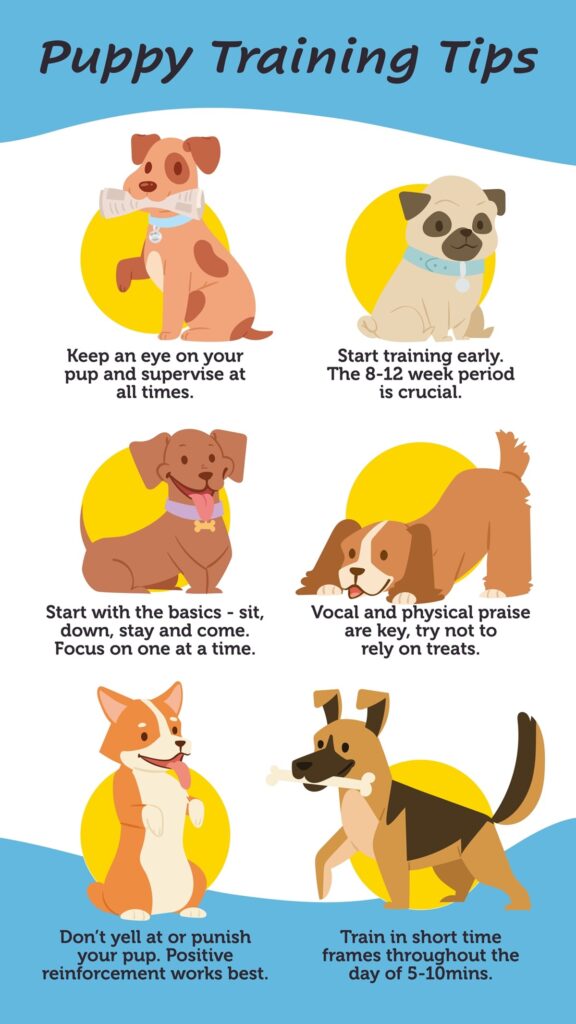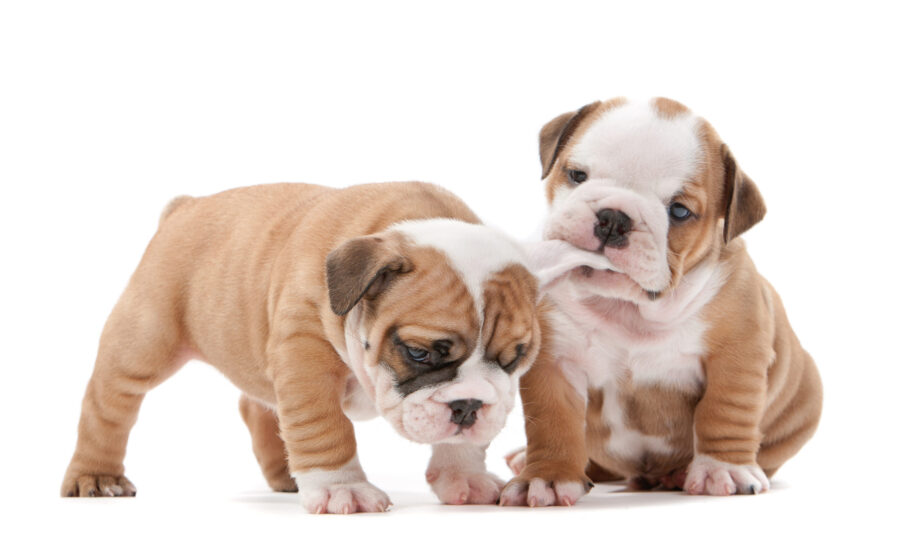It is a truly magical experience to welcome a new puppy into your home. As you might expect, your new journey not only comes with love, joy and endless furry cuddles, but you may also experience some new challenges when it comes to puppy parenting – but don’t worry, our Douglas Hall Kennels team is here to help.
In this article, we will cover nine essential things that every new puppy owner should be mindful of. From treatments and vaccinations, to understanding your puppy’s behaviour and the importance of socialisation; our team have got you covered.
Our Advice for Bringing Your Puppy Home
It is essential to create a comfortable and safe environment for your puppy on their first day. Set up a cosy bed, provide fresh water and food, and introduce them to their designated potty area.
Our Tips:
- Even though everybody wants to meet your new family member, it’s best to introduce family members gradually and to keep the initial interactions calm.
- Allow your puppy to explore and adjust to their new surroundings while showering them with love and attention.
- Remember to puppy-proof your home by removing any potential hazards.
- Make sure to stock up with plenty of toys to keep them entertained.
Feeding Time:
Proper nutrition is vital for the growth and development of your puppy. A well-balanced and nutritious diet will lay the groundwork for a healthy and happy life.
Start by choosing a high-quality puppy food that meets their nutritional needs. Follow the feeding guidelines provided by the manufacturer, but keep in mind that these are just general recommendations; each puppy is unique, so it’s important to monitor their weight and adjust the portion size accordingly.
Our Tips:
- Remember to provide fresh water at all times and establish a regular feeding schedule and try to minimise the amount of treats you give them.
- We recommend avoiding feeding your puppy while you’re eating or from the table.
- If you ever have any concerns about your puppy’s diet or weight, please contact your vet.
Potty Training Your Puppy
Potty training is one of the first and most important tasks you’ll face as a new puppy owner. Teaching your puppy where and when to do their business is essential. When it comes to potty training, patience and consistency are essential. Begin by establishing a routine and taking your puppy outside on a regular basis, particularly after meals and naps. When your puppy goes in the chosen area, reward them with treats and praise.
Our Tip:
Accidents are unavoidable but keep your cool and avoid scolding your puppy. With time and positive reinforcement, your furry friend will become a potty-trained pro! Take a look at our puppy training tips:

When Should You Vaccinate, Flea and Worm Your Puppy?
It is crucial that you keep your puppy healthy and disease-free. Vaccinations, flea treatments, and regular deworming are all necessary to protect your pup’s health. We always recommend consulting with your veterinarian to determine your puppy’s vaccination schedule. Vaccinations are typically administered from the age of six to eight weeks.
After you bring your puppy home, flea treatments and worming should be performed on a regular basis to prevent outbreaks and ensure your puppy’s health. Your vet will be able to advise you on the best products and frequency for your particular puppy. Each treatment is slightly different so make sure to check your flea and worming treatment to see how often it is recommended.
When Should I Microchip My Puppy?
Microchips are small devices that are implanted beneath the skin and contain a unique identification number. This number, along with your contact information, is kept in a national database. If your puppy goes missing, a microchip scanner can read the information on the chip and help you reunite with your pet.
Microchipping your puppy is an important step towards ensuring their safety and increasing the likelihood of a happy reunion if they become lost. In the UK, it is a legal requirement for puppies to be microchipped by the time they are eight weeks old – and all of our puppies are. Microchipping is a simple and relatively painless procedure that provides peace of mind and acts as a permanent form of identification.
Why Should You Buy Pet Insurance?
Just like humans, pets can fall ill or get injured unexpectedly. That is why you should think about getting pet insurance for your new puppy. Pet insurance helps to cover the cost of veterinary bills, ensuring that your four-legged friend receives the best care possible without breaking the bank.
Our Tips:
It is important to carefully review the coverage, including accident and illness coverage, as well as any exclusions or limitations, before purchasing a pet insurance policy. When choosing a policy, consider your puppy’s breed, age, and any pre-existing conditions.
We always recommend that you should get your puppy’s insurance coverage sorted as soon as possible to protect your puppy’s health and give you peace of mind!
Why is Puppy Socialisation Important?
Socialisation is an important part of raising a well-rounded, happy puppy. Early socialisation helps your puppy to develop positive behaviours and adapt to new environments, people, and animals.
From a young age, expose your puppy to new sights, sounds, and experiences. To promote healthy social interactions, schedule playdates with other puppies or friendly adult dogs. Because positive reinforcement is important in socialisation, reward your puppy for good behaviour and give treats during new experiences.
Our Tips:
We recommend reading blog on how to socialise your puppy to ensure that you have as much information as you can.
Understanding Your Puppy’s Behaviour and Body Language
Understanding your puppy’s behaviour and body language is essential for developing a strong bond and ensuring his or her well-being.
Puppies communicate through body language and understanding how to interpret their signals will help you effectively address their needs. Wagging the tail, for example, can indicate excitement or happiness, whereas tucking the tail can indicate fear or anxiety.
Our Tips:
We recommend reading blog on learning your puppy’s body language to understand what your puppy is trying to tell you.

